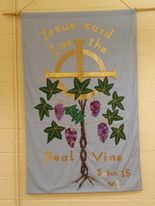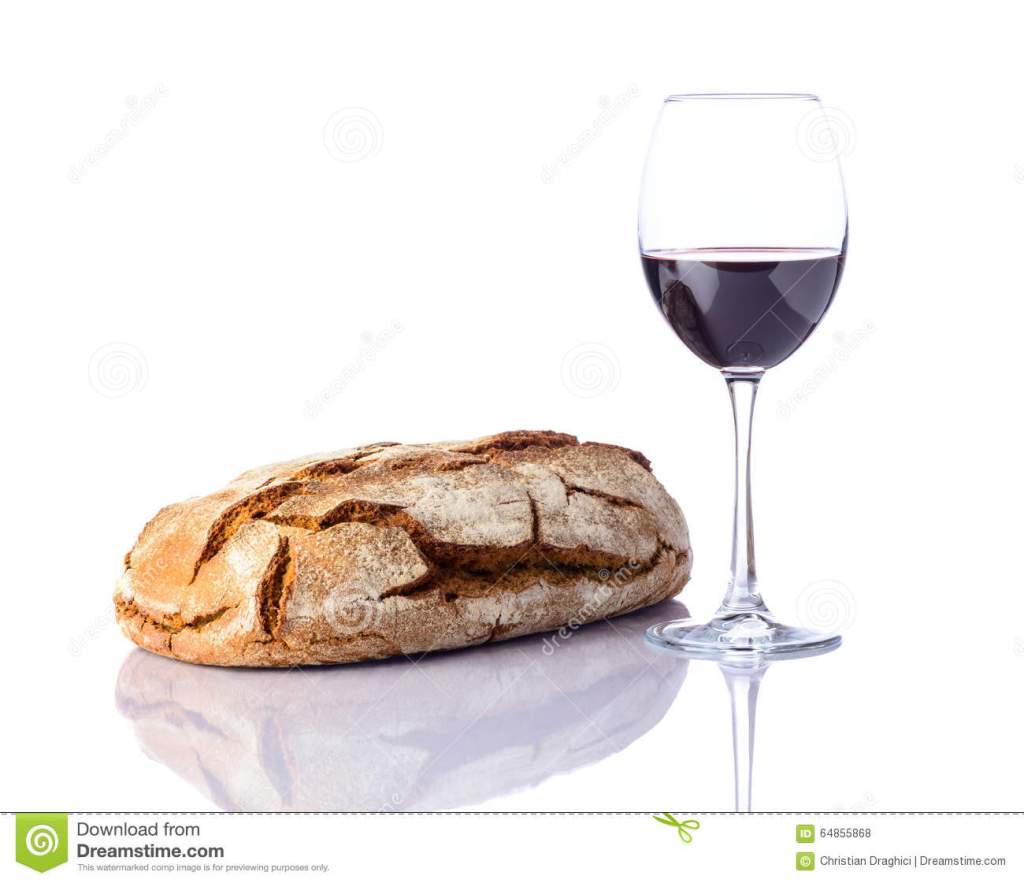28th April 2024. To day the 5th Sunday of Easter, we look into John 15:1-8. “the Vine and the branches which could be seen as us the followers of the vine, Jesus Christ and the Branches and our lives, a bit cryptic, but tell me a story about Jesus Christ or indeed a Parable that’s was ever straight forward?,
In the name of the father, The Son and the Holy Spirit.
Think about what you do in your daily life that just leaves you exhausted. I am talking about the things that leave you emotionally drained and physically worn out. Goodness, have I done my 10.000 steps yet!!!
These are not the kind of things for which sleeping late, taking a day off, or going on holiday are the antidote. It’s about more than just being tired. The constant physical and emotional striving depletes and empties our spirit. You feel your soul drying out even as your tears get closer and closer to overflowing. Imagine the Hell of finding that God is in exile to some people, To those whos faith has diminished!!
You do what you’ve got to do but it’s not really what you want to do. You give your time and your effort but not your heart. What are those things for you? What’s number one on your list? What’s number two? What’s number – – let’s not even go to number three.
Now think about those things you do that seem effortless. They just flow. You’re in the zone. They are the things in which you totally immerse yourself. You bring all that you are and all that you have. You hold nothing back. You give it your all and you wouldn’t have it any other way. You feel light as a feather. You feel full and complete. You look at the clock and wonder where has time gone.
You don’t want to stop and when you do you can’t wait until you can start again. This is about wholeheartedness and it’s the antidote to exhaustion. * What are those things for you? What’s number one on your list? What’s number two? Number three? Four? You can’t have too many of those.
So what’s the difference between the things on your two lists? One takes all that we have and we feel exhausted but the other we give all that we have and we feel invigorated. That make you feel like we’re crashing, the other like we’re soaring. One leaves us feeling wrung out and thankful the day is finally over. The other leaves us feeling, what my mother used to call, “a good tired” and thankful for the day. What’s that about?
As different as those two lists seem they have something in common. You and me. You are what’s common to your two lists even as I am what’s common to mine.
I wonder what if those two lists are two ways of living? What if those two ways of living are two branches in each of our lives?
And what if one branch vine. fruit and the other leaves us dying on the vine? Fruitless.
As I look at those two lists in my life – and maybe this is true for your life too – I find my first list is about productivity. It’s about my need to do, to accomplish, to meet expectations, to be approved of and liked. It’s about my determination, my work, my effort, my will. It’s mostly about my ego, measuring my worth, and keeping score. I’ve measured productivity with, trophies, awards hours worked and income; checking my progress on the to do list; They filled my shelves of my life but emptied my heart.
The second list, however, is about my fruitfulness. It’s about a way of being that gives my life meaning. It’s knowing my worth apart from my usefulness. It’s seeing the abundance of life as a quality not a quantity. It’s having values rather than measuring value. It’s discovering and following my purpose regardless of anyone else’s approval, recognition, or reward. It’s being comfortable in your own skin. It’s knowing that you belong and have a place. Things just seem to fit together. It’s being connected to and abiding in something greater than ourselves. Maybe instead of fruitfulness a better word for all this is wholeheartedness. Those are the moments when I show up to life with an emphatic and thankful yes.
I wonder if we sometimes let our productivity highjack our fruitfulness and wholeheartedness. We get the job done and we pay our way, but at what cost? What have you lost in your life today by living from a place of productivity rather than wholeheartedness?
I’m not suggesting we ought not be productive. Some things just need to be done. But what if true productivity arises from wholeheartedness and not in opposition to it? What if wholeheartedness and not productivity was our default mode?
I think we all want to live fruitful and wholehearted lives. It’s what we want for ourselves, our children and grandchildren, our friends. Most of us probably struggle to find it.
I think that’s, at least in part, why we show up here each Sunday. It’s why we follow Jesus. We see in him what we want for ourselves – wholeheartedness.
And let’s be honest. Jesus wasn’t overly, anything, Born in Bethlehem. A runaway at twelve. Baptized at thirty. Itinerant teacher for three years. Dead at thirty-three. Resurrected three days later. What did he really do on a daily basis?
For three years he showed up. He was present. He listened. He loved. He connected with people. He prayed. He was faithful and obedient. He told stories about life and finding meaning. He offered mercy and forgiveness. He shared meals with all people . He was compassionate. He touched the hurting and broken places in people’s lives. He had a vision for a new life and a different way of being in the world. He offered hope. He pointed to a life beyond his own. He helped people connect with themselves, and one another, and God. He didn’t do all that much, but he made a huge difference. In short, he was more fruitful, but taught others to be productive.
That’s how I want to live, don’t you? I want my life to matter. I want my life to have meaning. I want to give myself to what is worthwhile. I want to make a difference. I want to give priority to people and relationships. I want to be deeply connected. I want to blossom and grow. I want to “be fruitful and multiply” as we learn in Genesis 1:28.
And here’s the hard part about that kind of life. It comes only by removing the branches in our life that do not bear fruit and pruning those that do. Either way we’re going to be cut. And I wonder what that means for us all today.
Look at your two lists again. What would it take to move more of your life to the second list, to move just one aspect of your life from productivity to wholeheartedness? What in your life today needs to be removed, cut away, released, let go of? And what needs to be pruned, tended, nurtured, and cared for? even in our darkest hour, no matter what trials or tribulations we might face, still we can have confidence in the Lord, that He will be by our side, as He always has been, and help us through whatever we are facing.
However, lets not forget our Psalm for today, we also find that assurance from another perspective. When we read from Psalm 22 and reflect on how that Psalm blends and allows us to see the fuller picture, where Gods word and Jesus go hand in hand .
whilst we might initially think of the suffering face by the Psalmist himself, or even more generally to the people of Israel, there are also Messianic overtones here and this Psalm is reminiscent of the Suffering Servant Songs we find in the prophecies of Isaiah. Look again at the Psalm, read it slowly, and note how it ends, ‘They will proclaim his righteousness to a people yet unborn – for he has done it.
Through Jesus Christ God has reconciled Himself to us and by His Spirit He is with us always. Whatever life may throw at us, whatever comes our way, we are never alone – the Lord is with us and always will be. So let us reflect.
Lord, we know that as we journey through life that we will face many trials and tribulations along the way, but still we give You thanks and praise for we know that you are with us every step of the way and will never abandon us, guiding us and allowing us to have our lists, our thoughts on how our lives exist and for that we thank You. And be ever grateful for the teaching of our Lord Jesus and all he has taught us with Gods guidance each and everyday Amen.



